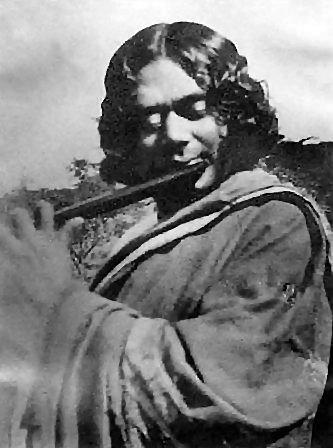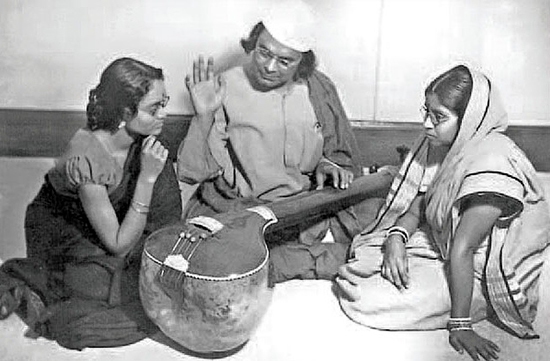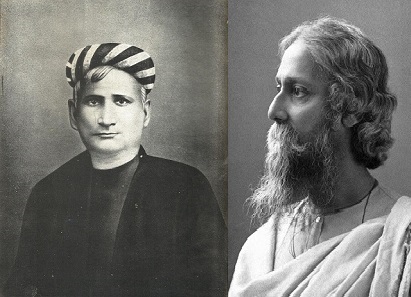|
List Of Works By Kazi Nazrul Islam
This is a complete listing of the works by Kazi Nazrul Islam, in the Bengali language. Poetry *''Agni Bina'' (The Fiery Lute), 1922 *''Sanchita'' (Collected poems), 1925 *''Phanimanasa'' (The Cactus), 1927 *Chakrabak (The Flamingo), 1929 *Satbhai Champa (The Seven Brothers of Champa), juvenile poems, 1933 *Nirjhar (Fountain), 1939 *Natun Chand (The New Moon), 1939 *Morubhaskar (The Sun in the Desert), 1951 *Sanchayan (Collected Poems), 1955 *Nazrul Islam: Islami Kobita (A Collection of Islamic Poems; Dhaka, Bangladesh: Islamic Foundation, 1982) Poems and songs *Dolan Chapa (name of a faintly fragrant monsoon flower), 1923 *Bisher Bashi (The Poison Flute), 1924 *Bhangar Gan (The Song of Destruction), 1924 proscribe in 1924 *Chhayanat (The Raga of Chhayanat), 1925 *Chittanama (On Chittaranjan), 1925 *Samyabadi (The Proclaimer of Equality), 1926 *Puber Hawa (The Eastern Wind), 1926 *Sarbahara (The Proletariat), 1926 *Sindhu Hindol (The Undulation of the Sea), 1927 *Jinjir (Chain), ... [...More Info...] [...Related Items...] OR: [Wikipedia] [Google] [Baidu] |
Nazrul
, pseudonym = bn, ধূমকেতু, Dhūmketu , image = Nazrul.jpg , image_size = , caption = Nazrul in Chittagong, 1926 , birth_date = 11 ''Joiṣṭhyô'', 1306 '' Bônggabdô'' , birth_place = Churulia, Asansol, Bengal Presidency, British India , death_date = , death_place = Dhaka, Bangladesh , resting_place = Mausoleum of Kazi Nazrul Islam , occupation = , language = , citizenship = British Indian Indian Bangladeshi , education = , alma_mater = , period = 1922–1942 , genre = , subject = , movement = Bengali Renaissance , notableworks = , spouse = , children = , awards = , signature = Signature of Kazi Nazrul.jpg , signature_alt = , module = , party = Workers ... [...More Info...] [...Related Items...] OR: [Wikipedia] [Google] [Baidu] |
Kazi Nazrul Islam
Kazi Nazrul Islam ( bn, কাজী নজরুল ইসলাম, ; 24 May 1899 – 29 August 1976) was a Bengali poet, Bengali literature, writer, Bangladeshi music, musician, and is the national poet of Bangladesh. Nazrul is regarded as one of the greatest poets in Bengali literature. Popularly known as Nazrul, he produced a Complete Works of Kazi Nazrul Islam, large body of poetry, music, messages, novels, stories, etc. with themes that included equality, justice, anti-imperialism, humanity, rebellion against oppression and religious devotion. Nazrul's activism for political and social justice as well as writing a poem titled as "Bidrohī", meaning "the rebel" in Bengali, earned him the title of "Bidrohī Kôbi" (''Rebel Poet''). His compositions form the avant-garde music genre of Nazrul Geeti, Nazrul Gīti (''Music of Nazrul''). Born into a Bengali Muslim Qadi#IndoPak Region, Kazi family hailing from Bardhaman district, Burdwan district in Bengal Presidency (now in West Be ... [...More Info...] [...Related Items...] OR: [Wikipedia] [Google] [Baidu] |
Bengali Language
Bengali ( ), generally known by its endonym Bangla (, ), is an Indo-Aryan languages, Indo-Aryan language native to the Bengal region of South Asia. It is the official, national, and most widely spoken language of Bangladesh and the second most widely spoken of the 22 scheduled languages of India. With approximately 300 million native speakers and another 37 million as second language speakers, Bengali is the List of languages by number of native speakers, fifth most-spoken native language and the List of languages by total number of speakers, seventh most spoken language by total number of speakers in the world. Bengali is the fifth most spoken Indo-European language. Bengali is the official language, official and national language of Bangladesh, with 98% of Bangladeshis using Bengali as their first language. Within India, Bengali is the official language of the states of West Bengal, Tripura and the Barak Valley region of the state of Assam. It is also a second official lan ... [...More Info...] [...Related Items...] OR: [Wikipedia] [Google] [Baidu] |
Agni Bina
Agnibeena ( bn, অগ্নিবীণা) is the first poetry book written by Kazi Nazrul Islam, one of the most famous Bengali poet of the first half of the twentieth century. It was published in the month of Kartik, the Bengali year 1329 (October, 1922). There are twelve poems in this book. List of poems Agnibeena contains a preface where Nazrul dedicated the book to Barindra Kumar Ghosh and 12 poems. The most famous poem of this book is " Bidrohi". * "Pralayollas Pralayollas ( bn, প্রলয়োল্লাস, ''The Ecstasy of Destruction'' or ''Destructive Euphoria''), also known after its first line as ''Tora sab jayadbhani kar'' is a popular revolutionary Bengali song set to Dadra Tala, wh ..." * " Bidrohi" * "Raktambor-Dharini Ma" * "Agamoni" * "Dhumketu" * "Kamal Pasha" * "Anwar" * "Ranobheri" * "Shat-el-Arab" * "Kheyaparer Taroni" * "Qurbani" * "Muharram" References {{Kazi Nazrul Islam Kazi Nazrul Islam 1922 poetry books Bengali poetry ... [...More Info...] [...Related Items...] OR: [Wikipedia] [Google] [Baidu] |
Shiulimala
''Shiulimala'' (''a garland of shiuli'') (1931) is a book of short stories, written by Kazi Nazrul Islam. This book contains four stories. The stories contained in the volume are: Padmagokhra, Shiulimala, Ognigiri, Jiner Badsha. These stories are erotic.An important discussion hold on Nazrul short story in Department of Bengali , Govt Rajendra college ,Faridpur Date : 5-11-2014 Here we find romantic Nazrul. However, Nazrul made great contributions in Bengali Bengali or Bengalee, or Bengalese may refer to: *something of, from, or related to Bengal, a large region in South Asia * Bengalis, an ethnic and linguistic group of the region * Bengali language, the language they speak ** Bengali alphabet, the w .... References . Bengali-language literature 1931 short story collections Erotic short stories Kazi Nazrul Islam {{1930s-story-collection-stub ... [...More Info...] [...Related Items...] OR: [Wikipedia] [Google] [Baidu] |
Mrityukshuda
''Mrityukshuda'' (''Hunger for Death'') (1930) is a Bengali novel by Kazi Nazrul Islam. It is one of only three novels written by him. The author saw the Bolshevik revolution The October Revolution,. officially known as the Great October Socialist Revolution. in the Soviet Union, also known as the Bolshevik Revolution, was a revolution in Russia led by the Bolshevik Party of Vladimir Lenin that was a key moment ... in Russia, with its unapologetic enthusiasm for science and rationalism, as well as the possibilities it seemed to open up for normal, everyday people to create social justice and development for themselves, as profoundly attractive; the depiction of Ansar, a character in the novel, is a reflection of that. The novel has 28 parts.Mrityukshudha ,Published from Meghdut prokashoni 1st publish Ekushe Boimela 2004 Ansar and Pakale are the main characters. References Novels about poverty 1930 novels Bengali-language novels Bangladeshi novels Kazi Nazrul Isla ... [...More Info...] [...Related Items...] OR: [Wikipedia] [Google] [Baidu] |
Bengali Poetry
Bengali poetry is a rich tradition of poetry in the Bengali language and has many different forms. Originating in the Bengal region of South Asia, the history of Bengali poetry underwent three successive stages of development: poetry of the early age (like '' Charyapad''), the Medieval period and the age of modern poetry. All ages have seen different forms of poetry and poetical tradition. It reached the pinnacle during the Bengali Renaissance period although it has a rich tradition and has grown independent of the movement. Major Bengali Poets throughout the ages are Chandidas, Alaol, Ramprasad Sen, Michael Madhusudan Dutt, Nabinchandra Sen, Rabindranath Tagore, Dwijendralal Ray, Satyendranath Dutta, Kazi Nazrul Islam, Jibanananda Das, Jasimuddin, Sukanta Battacharya, Al Mahmud. Introduction Poetry in the colloquial dialect of Bengal first originated from Prakrit, and based upon local socio-cultural traditions. It was antagonistic towards Vedic rituals and laws as opposed ... [...More Info...] [...Related Items...] OR: [Wikipedia] [Google] [Baidu] |
Bengali-language Literature
Bengali ( ), generally known by its endonym Bangla (, ), is an Indo-Aryan language native to the Bengal region of South Asia. It is the official, national, and most widely spoken language of Bangladesh and the second most widely spoken of the 22 scheduled languages of India. With approximately 300 million native speakers and another 37 million as second language speakers, Bengali is the fifth most-spoken native language and the seventh most spoken language by total number of speakers in the world. Bengali is the fifth most spoken Indo-European language. Bengali is the official and national language of Bangladesh, with 98% of Bangladeshis using Bengali as their first language. Within India, Bengali is the official language of the states of West Bengal, Tripura and the Barak Valley region of the state of Assam. It is also a second official language of the Indian state of Jharkhand since September 2011. It is the most widely spoken language in the Andaman and Nicobar Islands ... [...More Info...] [...Related Items...] OR: [Wikipedia] [Google] [Baidu] |
Bengali Music
Bengali music ( bn, বাংলা সংগীত) comprises a long tradition of religious and secular song-writing over a period of almost a millennium. Composed with lyrics in the Bengali language, Bengali music spans a wide variety of styles. The Bengal region of the Indian subcontinent is currently split between the Indian state of West Bengal and the country of Bangladesh. West Bengal is still referred to as Bengal in the rest of India. History The earliest music in Bengal was influenced by Sanskrit chants, and evolved under the influence of Vaishnav poetry such as the 13th-century '' Gitagovindam'' by Jayadeva, whose work continues to be sung in many eastern Hindu temples. The Middle Ages saw a mixture of Hindu and Islamic trends when the musical tradition was formalized under the patronage of Sultan and Nawabs and the powerful landlords '' baro bhuiyans''. Much of the early canon is devotional, as in the Hindu devotional songs of Ramprasad Sen a bhakta who cap ... [...More Info...] [...Related Items...] OR: [Wikipedia] [Google] [Baidu] |





